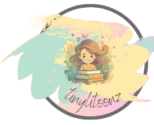Early literacy is a fundamental cornerstone in the development of a child. It is more than just learning to read and write; it encompasses the ability to understand and use language in all its forms. This essential skill set opens doors to countless opportunities and significantly impacts a child’s overall development. Let’s delve into why early literacy is so important and explore real-life examples that highlight its profound impact.
Cognitive Development
Early literacy skills foster critical cognitive development in children. When children engage with books, stories, and language activities, they enhance their brain’s capacity to think, understand, and remember. Reading to young children, for example, stimulates the parts of the brain that allow them to understand the meaning of language and build key language, literacy, and social-emotional skills.
Real-life example: AS per the study conducted, it was found that children who were read to during infancy and preschool years demonstrated significantly higher language and cognitive development compared to those who were not. This early exposure to literacy gave them a substantial advantage when they started school.
Emotional and Social Growth
Books are a gateway to understanding emotions and developing empathy. Through stories, children learn about different perspectives, cultures, and experiences. This understanding fosters emotional intelligence, helping children navigate their own feelings and build healthy relationships with others.
Real-life example: In a classroom setting, children exposed to stories about diverse characters and situations often show greater empathy and kindness towards their peers. Teachers have observed that students who engage in regular reading activities are more likely to resolve conflicts amicably and exhibit compassionate behavior.
Language and Communication Skills
Early literacy is pivotal in developing robust language and communication skills. As children listen to stories and engage in conversations about books, they learn new vocabulary, sentence structures, and ways to express their thoughts and ideas.
Real-life example: Consider a bilingual household where parents read to their children in both languages. These children often develop superior language skills, including a richer vocabulary and better grammar, which benefits them academically and socially.
Academic Success
Children who develop strong literacy skills early in life are more likely to succeed academically. Early literacy lays the foundation for learning across all subjects, including math, science, and social studies. It enables children to understand complex concepts, follow instructions, and engage actively in their education.
Real-life example: Research by the National Institute for Literacy indicates that children who enter kindergarten with proficient literacy skills perform better in later grades. These children are more likely to graduate high school and pursue higher education, opening doors to greater career opportunities.
Lifelong Love of Learning
Instilling a love for reading and learning at an early age creates lifelong learners. Children who enjoy reading are more likely to seek knowledge, explore new ideas, and continue their education beyond the classroom.
Real-life example: Famous personalities like Oprah Winfrey and Bill Gates attribute their success to their early love for reading. They often speak about how books opened their minds to new possibilities and fueled their desire to learn and grow.
Imagine a child’s brain as a sponge, soaking up information. When you read to them, sing songs, and talk about the world around, you’re helping that sponge grow bigger and stronger. This makes learning new things super easy and fun! It’s like giving them a secret superpower for life!
But it’s not just about being smart. Sharing stories helps kids understand their feelings, connect with others, and discover different cultures. 1 It’s like building a rainbow bridge between hearts. Kids who love books become curious explorers, always eager to learn and try new things. They’re the future doctors, scientists, and artists who will change the world!
How Can You Help?
- Read Regularly: Make reading a daily activity. It can be a bedtime story, a quiet afternoon reading session, or even a fun storytelling time with the family.
- Create a Reading-friendly Environment: Fill your home with books that are easily accessible to your children. Create a cozy reading nook to make reading time special.
- Be a Role Model: Show your children that you value reading. Let them see you reading books, magazines, or newspapers.
- Engage in Conversations: Talk to your children about the stories you read together. Ask questions, share thoughts, and encourage them to express their ideas.
By taking these steps, you can help your child develop early literacy skills that will benefit them for a lifetime. Let’s work together to make reading an integral part of every child’s life and watch them soar to new heights!

